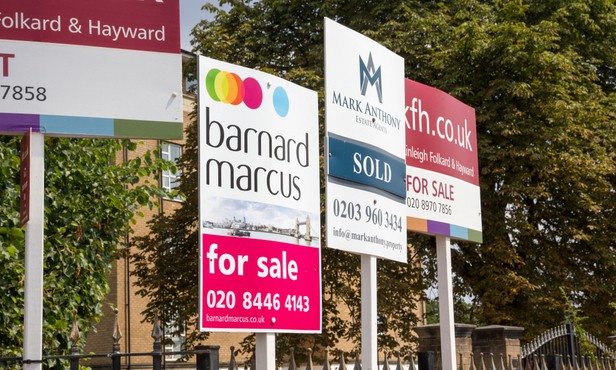The average property price in the UK has increased by 8.5% in the year to December 2020 to reach a record high of £252,000, according to the Office for National Statistics' House Price Index.

The average property price in the UK has increased by 8.5% in the year to December 2020 to reach a record high of £252,000, according to the Office for National Statistics' House Price Index.
Breaking down the data, average property prices rose over the year in England to £269,000, an 8.5% uptick.
However, the greatest rise was noted in Wales where house prices increased by 10.7% to £184,000.
Scotland noted an 8.4% increase to £163,000, and Northern Ireland a 5.3% rise to £148,000.
On a regional basis, the North West was the English region to see the highest annual growth in average house prices, up 11.2%, while London saw the lowest at 3.5%.
The London sales market remained strong throughout December 2020 according to estate agency Chestertons.
The agency conducted 44% more viewings, agreed 33% more sales transactions and brought 98% more new properties to the market compared toDecember2019.
Nick Barnes, head of research at Chestertons, said: “In contrast to the usual seasonal slowdown towards the end of the year, we were still seeing a very active sales market.
"Buyer demand continued to be fuelled by the stamp duty holiday and the desire to move to a larger property that provides a dedicated area for homeworking.”
“Following a recordDecember, the sales market has maintained momentum throughout January 2021.
"Compared to January last year, Chestertons registered 9% more instructions, indicating that sellers remain keen to move home.
"This is further highlighted by a 47% year on year increase in properties currently on the market.
"Equally, we have agreed 20% more sales, largely driven by house hunters rushing to meet the stamp duty holiday deadline but also possibly reflecting a desire to beat any potential shutting down of the housing market as proposed by the Labour party.”
Barnes added: “In spite of lockdown restrictions, there are still plenty of households who are keen to move.
"So far in February, Chestertons has seen a 15% increase in newly agreed sales and finalised 54% more exchanges compared to the same period in February 2020.
"We expect this number to rise as buyers remain keen to try to beat the stamp duty holiday deadline.
"How the housing market reacts once the stamp duty deadline has passed remains to be seen.
"The news that Rishi Sunak is considering extending the stamp duty holiday deadline by six weeks will be a relief for many but how quickly the economy recovers once the lockdown restrictions are relaxed will also be a key factor.”
Mike Scott, chief analyst at Yopa, added: "It is important to note that this is largely historic data, and doesn’t necessarily reflect the state of the market now that it is too late for a new buyer to beat the 31 March deadline for avoiding stamp duty.
“The home purchases that completed in December will mostly have been agreed, and had their prices established, in late summer and early autumn.
“We will have to wait for the June report, due in August, to see what prices buyers and sellers are agreeing right now.
"Nevertheless, the report does show that the combination of the re-opening of the housing market in May after the first lockdown and the stamp duty holiday that was announced in July led to a mini-boom in house prices.
“Only London has lagged significantly behind, with prices rising by only 3.5% over the year as pandemic-driven buyers prioritised space over an easy commute.
“The stamp duty holiday will soon end, although there might be a short extension announced in next month’s Budget, but the other drivers of the market will still be in place.
“Many people will be reassessing their needs and priorities as the pandemic finally recedes, and moving house will be easier when we are out of lockdown, so we expect that after a short pause around the end of the stamp duty holiday the market will return to a high level of activity with further price rises, especially for the larger and less urban homes that are now in high demand."
Adnan Shah, founder of Buraq London, said: “Festive celebrations had been put on hold in December, but it seems no-one told the housing market, which saw prices soar higher than New Year’s Eve fireworks.
“In hindsight, there were hints of an overheating market, with the monthly mortgage approvals cooling 103,400 in December, down slightly from 105,300 in November.
“Much of the slowdown in January had been due to buyers’ fears over the stamp duty holiday ending, but the growing optimism about an extension should see house prices blossom through the spring.”
Nigel Purves, chief executive of Wayhome, said of the data: “Despite the national lockdown, housing marketing activity ended the year on a high, with house prices reaching a record.
“Anecdotally, we’ve seen more people looking for larger homes with gardens and additional space to accommodate working from home, not just during lockdown – but in the future too.
“This third national lockdown has driven home the importance of space and security in housing and will doubtless have led to significant numbers of renters looking at their homeownership options.
“It’s therefore important that those who’ve been able to save for a deposit are supported when it comes to alternative ways of getting on the property ladder.”



